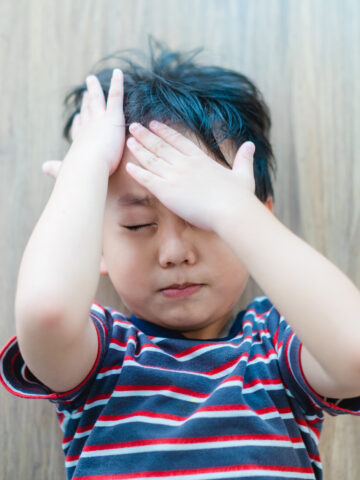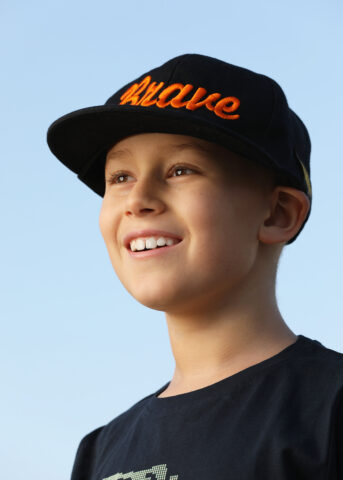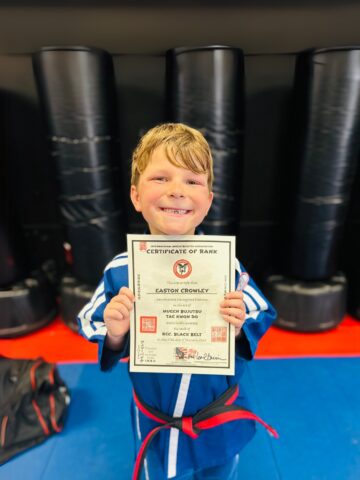Many parents are familiar with struggles with children and teens over going to sleep. But when it comes to children set to undergo an electroencephalogram or EEG, the problem can be the opposite: How do you keep kids awake?
It’s critical that children be sleep deprived before EEGs, which measure electrical activity in the brain and help monitor and diagnose seizure disorders, says Jeannette Garcia, CHOC’s diagnostic services supervisor.
“Sleep deprivation is important for EEGs in the pediatric community because that’s when we could possibly see abnormalities, when they are tired,” Jeannette says. “The lack of sleep stresses out the brain, and that’s when a seizure or other abnormality could possibly occur.”
To that end, patients ranging from toddlers to teenagers are asked to sleep for a minimum of four hours before an EEG. A typically recommended sleep schedule is from midnight to 4 a.m.
Because infants undergoing an EEG must also be tired, CHOC works to schedule the test to coincide with the baby’s nap schedule, Jeannette says.
“No matter the age, it’s hard on the patients and it’s hard on the parents,” she says.
While a sleep-deprived child’s grumpiness can only be met with patience and understanding, Jeannette has a few tips that parents can employ to keep children awake before the exam.
Plan activities
Keeping patients busy before the exam can help them stay awake. Try an early-morning play session at the park. Anything that keeps kids active and stimulated can help combat sleepiness.
Stimulate the senses
Engage the body’s senses to fight Zzzs. Keep the lights bright and the music loud. Gentle tickling can also help, as can asking children to touch cold objects.
Be a chatterbox
Now is not the time for quiet. Keep children talking to keep them awake. Ask them questions and tell them stories. Ask them to tell you stories in return.
Team up with another adult
Even rested children are prone to falling asleep in the car. Add sleep deprivation and an isolated backseat, and a child could be snoozing in no time. To help keep them awake, ask another person to ride along in the backseat to keep the child engaged and awake by using the methods above.
Try your best
Jeannette and CHOC’s diagnostics team acknowledge that medications and other factors can make it very difficult for some children to be sleep deprived. That’s OK, she says.
“If there’s times when parents say, ‘There’s no way I’ll be able to sleep deprive them.’ We tell them do the best they can and that we know it’s hard on them. It’s hard on everyone,” Jeannette says.
Because they’re already tired, patients of all ages don’t usually have too much trouble falling asleep once the test begins, Jeannette says.
Just in case, though, she recommends that parents bring along a child’s favorite pillow, stuffed animal or blanket to help them be at ease. Dressing in pajamas or loose, comfortable clothing can help too. Sometimes parents will use their smart phone or another device to play their child’s favorite song, Jeannette says.
Get more expert health advice delivered to your inbox monthly by subscribing to the KidsHealth newsletter here.

Learn more about CHOC’s Neuroscience Institute
CHOC Hospital was named one of the nation’s best children’s hospitals by U.S. News & World Report in its 2025-26 Best Children’s Hospitals rankings and ranked in the neurology and neuroscience specialties.





